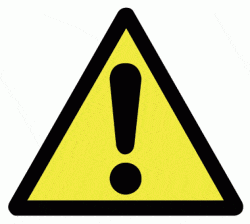
Dangerous Drug Alert: Olanzapine Skin Reactions
If you or someone you love takes antipsychotic medications, beware. The U.S. Food and Drug Administration (FDA) has released a dangerous drug alert concerning antipsychotic medication olanzapine. The medical malpractice attorneys at MedMalFirm.com want you…
If you or someone you love takes antipsychotic medications, beware. The U.S. Food and Drug Administration (FDA) has released a dangerous drug alert concerning antipsychotic medication olanzapine. The medical malpractice attorneys at MedMalFirm.com want you to be informed about this potentially dangerous drug. Read on to learn more about olanzapine, the dangers, and what you can do to protect yourself and your loved ones.
The Facts about Olanzapine
Olanzapine is prescribed for patients suffering from mental health disorders like schizophrenia, bipolar disorder, hallucinations, and disorganized thinking disorders. Olanzapine is also known as:
- Symbyax (olanzapine and fluoxetine combination)
- Zyprexa Relprevv
- Zyprexa
- Zyprexa Zydis
There are also a variety of generic versions of olanzapine. Like most medications, olanzapine is known to have some common side effects, such as:
- Dizziness
- Muscle stiffness
- Constipation
- Dry mouth
- Tremors
- Low blood pressure
- Weight gain
- Fatigue and lethargy
These side effects are most often non-life threatening and can easily be monitored or treated by your doctor. Olanzapine is a very common medication, with over four million prescriptions written in 2015. The high rate of prescribing is one of the concerning factors with the dangerous skin reactions being noted by the FDA.
Olanzapine and Dangerous Drug Skin Reactions
According to the FDA report, olanzapine has been linked to a serious skin reaction called Drug Reaction with Eosinophilia and Systematic Symptoms (DRESS). The symptoms of DRESS include:
- Fever
- Swollen face
- Swollen lymph nodes
- Rash
The FDA warns that DRESS may start as a rash or combination of these symptoms, and may spread to other parts of the body. Severe cases of DRESS have also been linked to severe adverse events, including failure of the liver, kidneys, lungs, pancreas, and heart. Anyone taking Olanzapine is urged to seek medical attention immediately if they develop any of these, or other unusual, symptoms. The FDA does not recommend stopping use of olanzapine drugs unless directed by your doctor. It is often tempting to stop taking a dangerous drug abruptly when concerns arise, but doing so could cause more harm than good to your health.
Cause and Occurrence of DRESS
DRESS is a serious illness that can be deadly. According to the FDA, the exact cause of DRESS is unclear, but is believed to be a combination of immunologic and genetic factors that cause toxic metabolite formation. Further, there may be a link between virus reactivation and DRESS, particularly viruses like herpes and Epstein-Barr.
Currently there is no known cure for DRESS, which makes early detection and intervention critical. So far, there have been 23 cases of DRESS reported in connection to olanzapine since its FDA approval in 1996. Sources suggest that there may be many more cases that are not reported to the FDA or other reporting agencies, so that number could increase.
Of those 23 patients, one person died after developing DRESS, and it is unclear whether olanzapine was a contributing factor to his or her death. The mortality rate for patients with DRESS is as high as 10 percent, and could be higher since many cases of DRESS may go unreported.
Responsibility of Doctors
According to the Centers for Disease Control and Prevention (CDC), adverse medication events result in 120,000 hospitalizations each year in the U.S., and total more than $3.5 billion in medical costs. Many adverse drug events (ADEs) are preventable, and it is the responsibility of prescribing healthcare providers to exercise due diligence when managing medications for their patients. It is also the responsibility of pharmacists to ensure that patients are provided with information about the drugs they have been prescribed, including potential risks or side effects.
Doctors have a duty to warn their patients and advise them according to accepted standards of care. Some of the duties doctors have in prescribing include:
- Staying up-to-date on current FDA and manufacturer labels, risks, and warnings.
- Informing you of warnings, risks, recalls, or possible medication or food interactions.
- Researching studies and trials that may indicate a dangerous drug not currently listed by the FDA.
- Obtaining a full medical and prescription history before prescribing you medication.
- Counseling you on the different possible medication options, including over-the-counter and prescription.
- Providing you with simple, accurate dosing instructions and medication information.
- Obtaining written consent when prescribing medications listed as off-label, meaning they are being used for purposes other than those identified by the FDA.
Doctors are considered intermediaries between you and drug manufacturers, meaning they have a great responsibility in relaying information and offering appropriate guidance.
Understand Your Rights as a Patient
Medication errors and dangerous drug reactions fall under the category of medical malpractice, which is a serious violation of your rights. Whether you were harmed by a doctor, nurse, pharmacist, drug manufacturer, or nursing home, you have the right to stand up for yourself and pursue justice. Medical malpractice is a complex area of the law, and it can be challenging managing a case against healthcare providers or drug manufacturers. Further, there is a statute of limitations on filing a medical malpractice case, which means time is of the essence. Fortunately, you are not alone. The team at MedMalFirm.com is here to help.
At MedMalFirm.com, we represent clients in all sorts of medical malpractice and healthcare negligence matters. If you have been harmed due to a preventable medication error or dangerous drug, contact our office to request a free consultation with one of our attorneys. Complete our online form or call us toll free at 877-887-4850.
